Domain-Specific AI Models for Industry: Powering Precision and Performance
Introduction
Artificial intelligence is transforming businesses at an unprecedented pace. While general AI models like ChatGPT and Google’s Bard captivate with broad capabilities, enterprises increasingly demand precision and domain expertise. This is where domain-specific AI models come into play—custom-built AI systems tailored to the unique characteristics, terminology, and workflows of specific industries. By honing in on expert knowledge and specialized data, domain-specific AI delivers greater accuracy, efficiency, and compliance. At Pure Technology, we believe domain-specific AI represents the future of AI-driven innovation across healthcare, finance, retail, manufacturing, and beyond.
What are Domain-Specific AI Models?
Unlike general-purpose AI trained on diverse and open-ended datasets, domain-specific AI models are designed and optimized for particular industries, fields, or use cases. For example, IBM Watson for Oncology is an AI trained exclusively with medical literature and clinical data to assist in cancer diagnosis and treatment decisions with expert-level accuracy.
These models:
- Understand industry jargon and domain-specific language
- Incorporate structured operational data and expert workflows
- Deliver outputs aligned with regulatory and compliance requirements
How Domain-Specific AI Works
Domain-specific AI relies heavily on curated datasets representative of the field—such as medical records, legal contracts, or financial transactions. The model undergoes:
- Training: Algorithms learn from carefully selected industry data, such as clinical trials or court rulings.
- Fine-Tuning: Models are continuously refined using proprietary enterprise datasets to adapt to evolving business needs.
- Integration: The AI provides seamless support within operational software and decision-making tools.
Natural language processing (NLP) plays a critical role, enabling models to comprehend complex texts and generate context-aware insights. Machine learning methods also help identify trends, detect anomalies, and predict outcomes specific to the industry’s domain.
Key Benefits of Domain-Specific AI Models
- Improved Accuracy: Specialized training data ensures more relevant and precise results compared to general AI.
- Contextual Relevance: Domain-aware models better interpret and apply industry-specific nuances.
- Regulatory Compliance: Tailored AI solutions adhere to privacy laws and standards relevant to the sector, such as HIPAA in healthcare or GDPR in finance.
- Operational Efficiency: Automation of specialized workflows reduces manual effort and error rates.
- Adaptability: Continuous learning from domain-specific feedback helps AI stay relevant amid changing industry landscapes.
Industry Use Cases
Healthcare
AI models trained on medical images, patient records, and research data assist doctors in diagnosing diseases and recommending treatments faster and more accurately. Google’s DeepMind Health analyzes eye scans with over 90% accuracy, surpassing human experts. Domain-specific AI reduces diagnostic errors and accelerates personalized care plans.
Finance
Financial institutions use domain-specific AI for fraud detection, risk modeling, and compliance monitoring. For example, JP Morgan’s AI detects suspicious transactions in real time, significantly reducing credit card fraud. AI also helps automate regulatory reporting, saving time while maintaining audit readiness.
Retail and E-Commerce
Retailers employ AI models tuned to consumer purchasing behaviors, inventory patterns, and market trends for demand forecasting and personalized marketing. Amazon’s AI-driven recommendation engine increases sales conversions by tailoring product suggestions based on customer-specific data.
Manufacturing
Predictive maintenance AI models monitor equipment sensors to forecast failures before they occur. This helps manufacturers minimize downtime and maintenance costs, improving operational continuity.
Legal
Legal firms use AI to analyze contracts, case law, and regulatory frameworks, accelerating legal research and improving accuracy. Lexis+AI assists attorneys with contract review and litigation predictions using domain-specific datasets.
Challenges in Adopting Domain-Specific AI
- Data Quality and Availability: Access to comprehensive, high-quality data is essential yet often fragmented across departments.
- Integration Complexity: Embedding AI within existing enterprise systems requires coordination and custom development.
- Ongoing Maintenance: AI models must be continuously updated to reflect new regulations, market changes, and operational shifts.
- Talent and Expertise: Specialized AI development demands collaboration among domain experts and data scientists.
Conclusion
Domain-specific AI models are redefining business intelligence by delivering unparalleled precision, efficiency, and compliance tailored to the unique needs of different industries. The shift away from generic AI towards specialized, expert-calibrated models is inevitable as enterprises pursue smarter automation and deeper insights. Pure Technology is committed to guiding businesses through this transformative journey, unlocking the full potential of AI with domain expertise and advanced technology.
Call us for a professional consultation

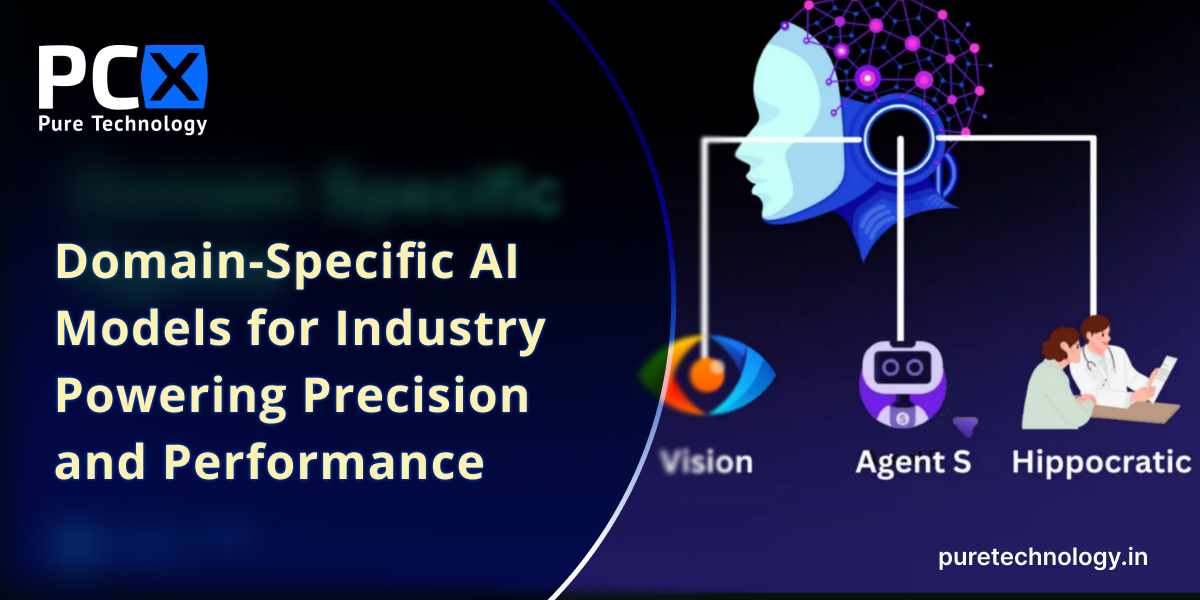

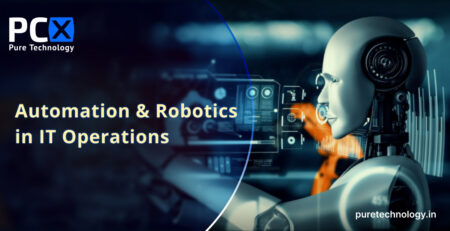
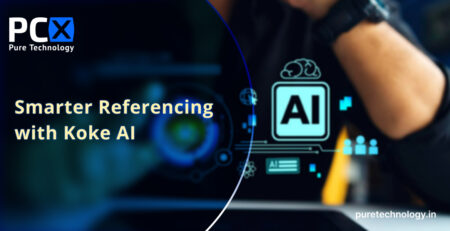


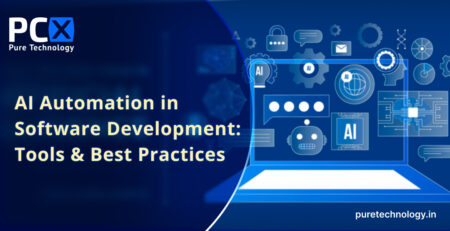



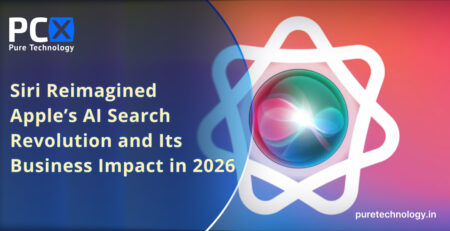
Leave a Reply